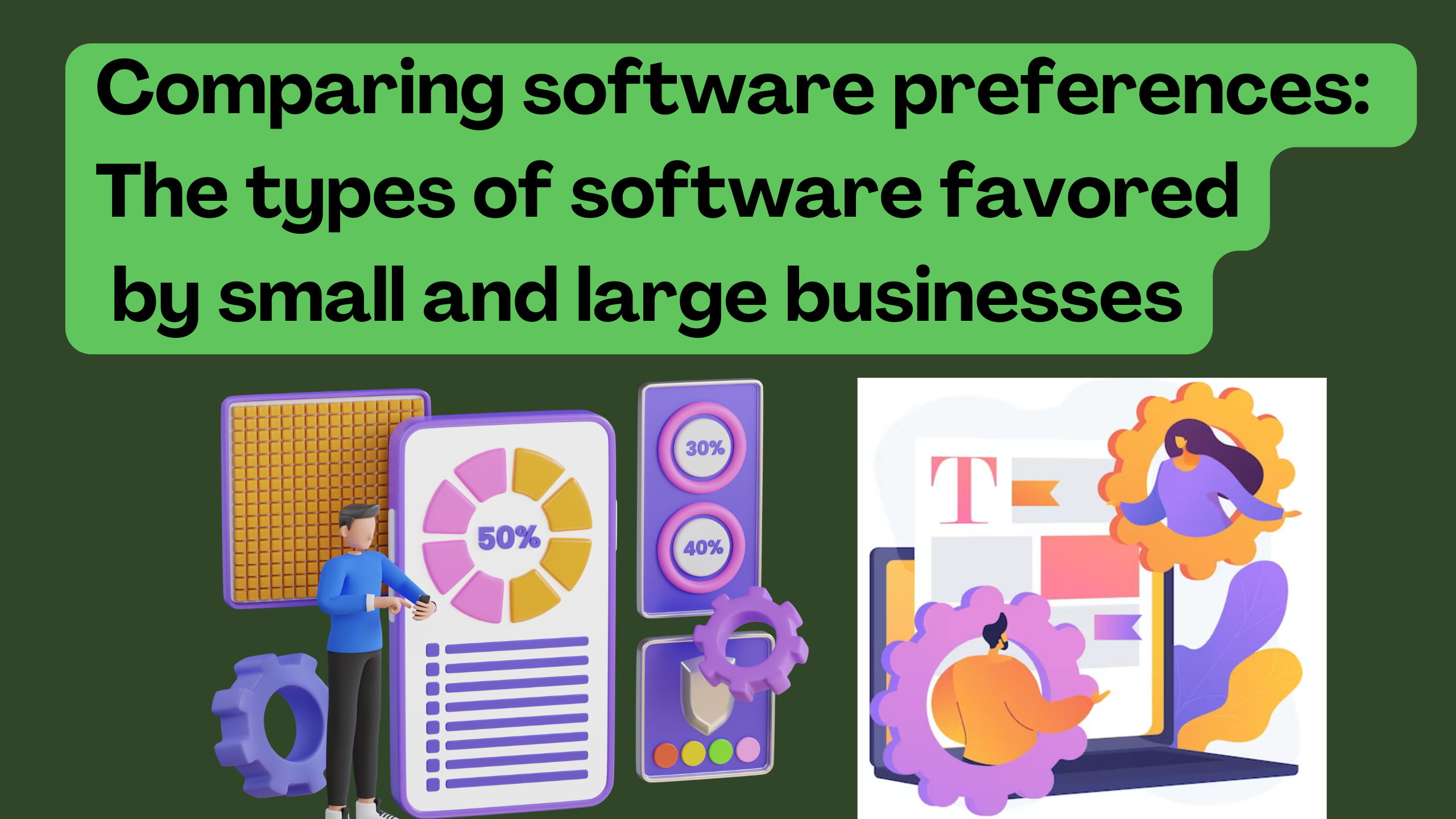Comparing software preferences: The types of software favored by small and large businesses
- Expense Management Software Credit Cards Investing Business Solutions


Comparing Software Preferences: The Types of Software Favored by Small and Large Businesses
In the intricate world of business software, the preferences of small and large businesses diverge due to their unique needs and operational scales. Let’s explore this dichotomy by comparing the software favored by each, with a special emphasis on the question: “How to implement a basic accounting system in a small business?”
Accounting Software for Small Businesses
1. QuickBooks Online
- Small Business: QuickBooks Online is a staple for small businesses, offering user-friendly features like invoicing and expense tracking. Its simplicity caters to the specific needs of smaller operations.
- Large Business: While QuickBooks Online is widely embraced by small businesses, larger enterprises may find it lacking in scalability and advanced functionalities required for complex financial management.
2. FreshBooks
- Small Business: FreshBooks shines in simplicity, making it ideal for small businesses. It focuses on essential accounting features along with time-tracking, providing an uncomplicated solution for crafters and freelancers.
- Large Business: Larger enterprises, with more intricate financial needs, may find FreshBooks lacking in the advanced features and scalability required for comprehensive financial management.
3. Wave Accounting
- Small Business: Wave Accounting is a free solution that resonates well with startups and small businesses. It covers the basics of invoicing and expense tracking, catering to the fundamental needs of smaller ventures.
- Large Business: Large enterprises typically require more robust and scalable solutions, and thus, Wave Accounting may fall short in meeting the comprehensive financial management needs of larger corporations.
4. Xero
- Small Business: Xero caters to the needs of small businesses with its cloud-based accounting platform. It strikes a balance between simplicity and functionality, making it a popular choice for small enterprises.
- Large Business: While Xero is efficient for small and medium-sized businesses, larger enterprises might opt for more extensive ERP solutions with advanced features that Xero may lack.
5. Zoho Books
- Small Business: Zoho Books offers a comprehensive suite of accounting tools suitable for small businesses. Its features include bank reconciliation, project billing, and expense tracking, providing a holistic solution.
- Large Business: Zoho Books may lack the scalability and advanced features needed for the complex financial needs of larger enterprises, making it better suited for smaller operations.
Enterprise-Level Solutions
6. SAP S/4HANA
- Small Business: SAP S/4HANA is an ERP solution tailored for large enterprises, making it less relevant for small businesses with simpler financial management needs.
- Large Business: A powerhouse in enterprise solutions, SAP S/4HANA provides the depth and breadth of functionalities required for the complex financial ecosystems of large corporations.
7. Oracle NetSuite
- Small Business: NetSuite, being a comprehensive ERP solution, may be overkill for small businesses, which often need more straightforward accounting tools.
- Large Business: NetSuite shines in large enterprises where its robust features, including financial management, HR, and inventory management, can be seamlessly integrated into complex business operations.
8. Microsoft Dynamics 365 Finance
- Small Business: Microsoft Dynamics 365 Finance, with its advanced features, may be excessive for the simpler accounting needs of small businesses.
- Large Business: Tailored for large enterprises, Microsoft Dynamics 365 Finance integrates smoothly with other Microsoft tools, providing a comprehensive solution for complex financial management.
Microsoft Dynamics 365 Finance
Conclusion
In the realm of software preferences, the choices made by small and large businesses are shaped by the unique demands of their operations. Small businesses favor user-friendly and cost-effective solutions that address immediate needs, while large enterprises lean towards comprehensive ERP solutions that can manage the intricacies of complex financial ecosystems.
Understanding these distinctions is crucial for businesses seeking to optimize their operations through strategic software choices.
Relevant Links:
- QuickBooks Online
- FreshBooks
- Wave Accounting
- Xero
- Zoho Books
- SAP S/4HANA
- Oracle NetSuite
- Microsoft Dynamics 365 Finance








